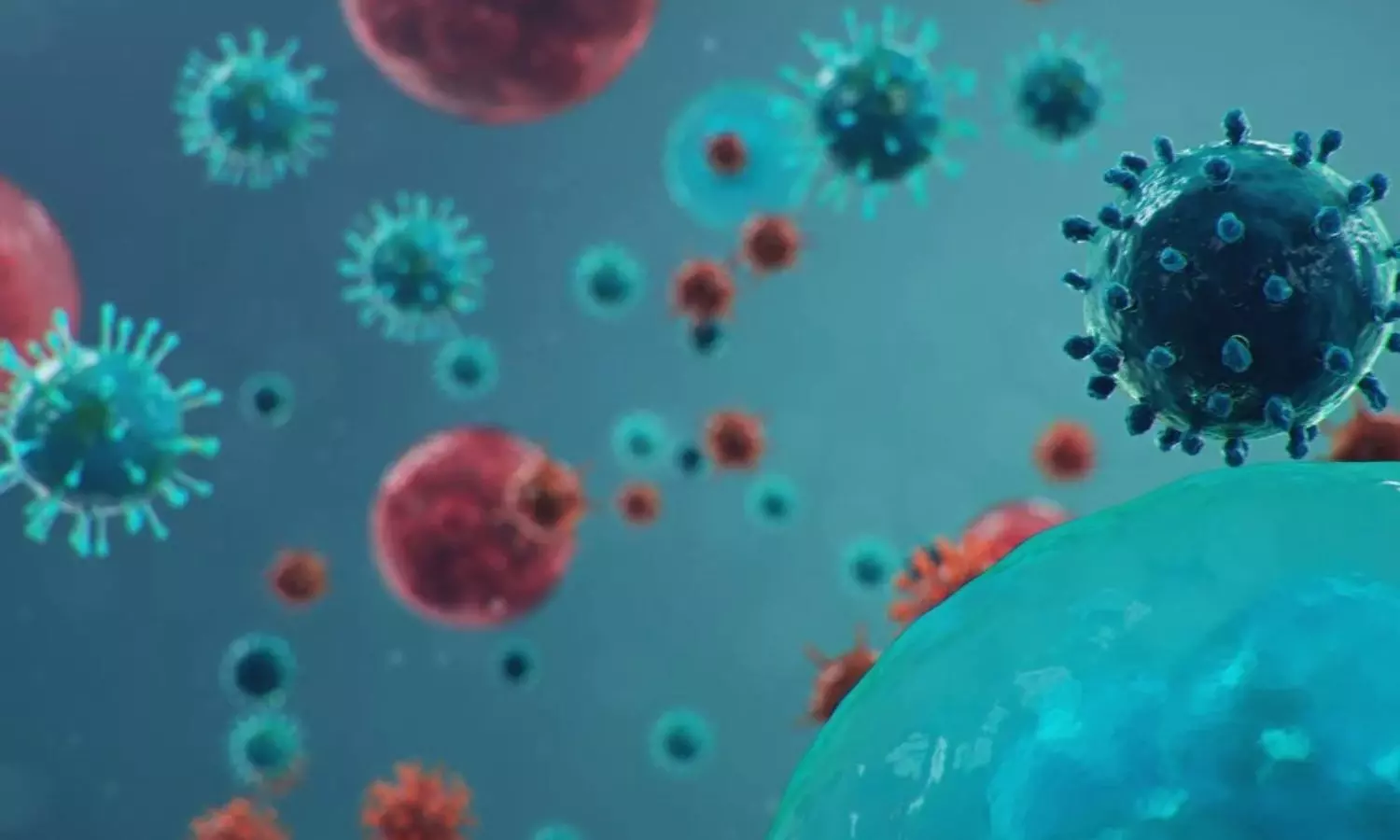- Home
- Medical news & Guidelines
- Anesthesiology
- Cardiology and CTVS
- Critical Care
- Dentistry
- Dermatology
- Diabetes and Endocrinology
- ENT
- Gastroenterology
- Medicine
- Nephrology
- Neurology
- Obstretics-Gynaecology
- Oncology
- Ophthalmology
- Orthopaedics
- Pediatrics-Neonatology
- Psychiatry
- Pulmonology
- Radiology
- Surgery
- Urology
- Laboratory Medicine
- Diet
- Nursing
- Paramedical
- Physiotherapy
- Health news
- AYUSH
- State News
- Andaman and Nicobar Islands
- Andhra Pradesh
- Arunachal Pradesh
- Assam
- Bihar
- Chandigarh
- Chattisgarh
- Dadra and Nagar Haveli
- Daman and Diu
- Delhi
- Goa
- Gujarat
- Haryana
- Himachal Pradesh
- Jammu & Kashmir
- Jharkhand
- Karnataka
- Kerala
- Ladakh
- Lakshadweep
- Madhya Pradesh
- Maharashtra
- Manipur
- Meghalaya
- Mizoram
- Nagaland
- Odisha
- Puducherry
- Punjab
- Rajasthan
- Sikkim
- Tamil Nadu
- Telangana
- Tripura
- Uttar Pradesh
- Uttrakhand
- West Bengal
- Medical Education
- Industry
COVID-19 sub-variant JN.1: Safdarjung Hospital doctors advise precautions

New Delhi: Amid the emergence of new coronavirus subvariant JN.1 cases in the country, authorities at the central government-run Safdarjung Hospital remain vigilant. Doctors advise being alert regarding this new variant, emphasizing that there is no need to panic, but precautions should be increased.
Dr Rohit Kumar, Head of Pulmonary Medicine at Safdarjung Hospital, said on Wednesday, "We are on high alert, conducting COVID tests, and sending samples for genome sequencing."
"COVID is an RNA virus that changes its form from time to time, and new variants of it emerge. And now a new variant has emerged, which has been named JN.1. However, not a single case has come to light in the capital, Delhi yet," he said.
Also Read:COVID-19 on the rise: Health Ministry asks states to maintain constant vigil
"We are on alert, keeping an eye on the Corona cases. Testing of patients is also being done, and the patients who are coming positive are also being sent for genome sequencing. So that new variants can also be detected, but till now no case of new variants has been reported in Delhi," Dr Kumar said.
A genome sequencing test is done to detect new variants of Corona. It cannot be detected by a normal test.
The doctors said that there is no need to panic, but precautions should be increased again.
"COVID affects our respiratory system the most. Upper respiratory problems are seen in the patients, problems like a sore throat, cough, cold, chest pain, and difficulty breathing are seen. Apart from this, problems like pneumonia in the lower respiratory system also occur in the lungs, and since it is the winter season, upper respiratory problems are being seen more during this time, but we cannot call them COVID because they can also be seasonal flu," Dr Kumar said.
However, he advised not to ignore any symptoms seen in patients during this period.
"If there is a sore throat, cough, cold, chest pain, or difficulty breathing, consult the doctor immediately. Especially those already suffering from respiratory diseases and asthma patients need to take special care. The doctor mentioned that during this season, individuals with serious diseases should be more careful, as those dying due to Covid often have pre-existing serious conditions such as heart disease and diabetes," Dr Kumar said.
Corona cases have started increasing once again in India. Currently, the number of active Corona patients in the entire country has reached 2,311. Along with this, the threat of JN.1 sub-variant is also being seen; its cases are being reported in the state of Kerala.
Earlier in the day, the Union Health Ministry also held a review meeting with all the states because of the increasing cases of coronavirus.
Kajal joined Medical Dialogue in 2019 for the Latest Health News. She has done her graduation from the University of Delhi. She mainly covers news about the Latest Healthcare. She can be contacted at editorial@medicaldialogues.in.



